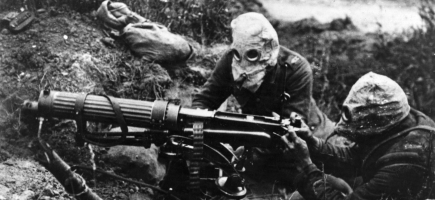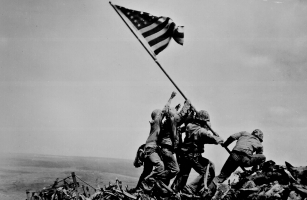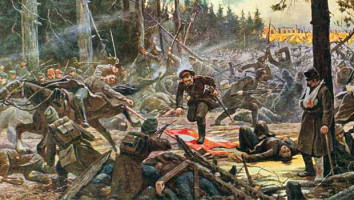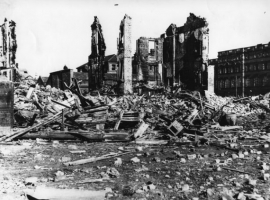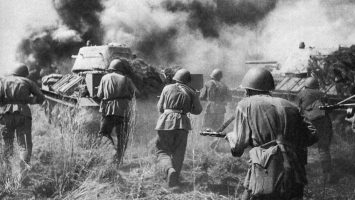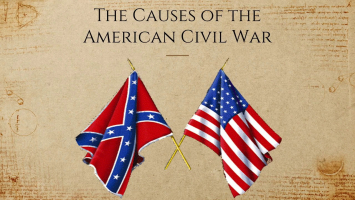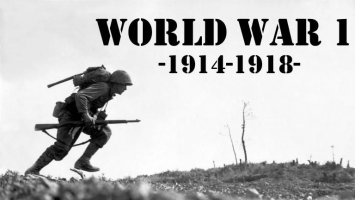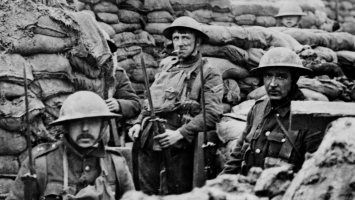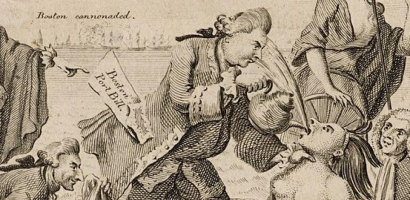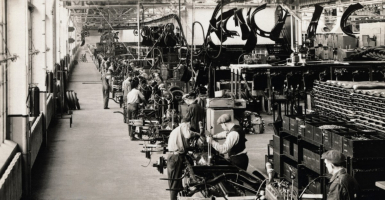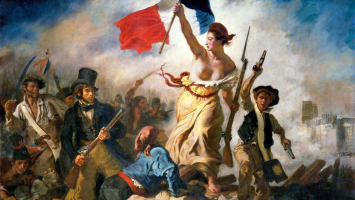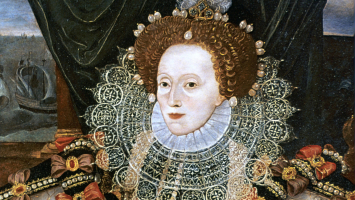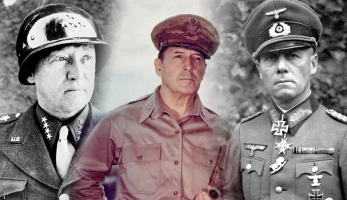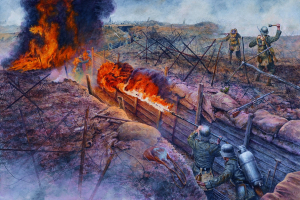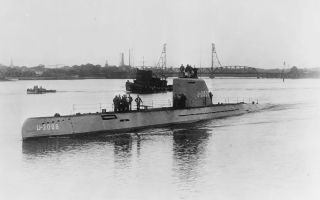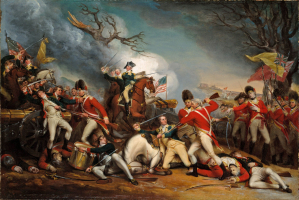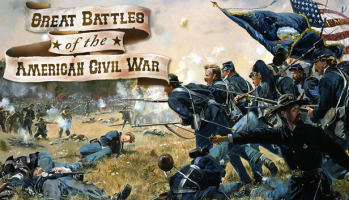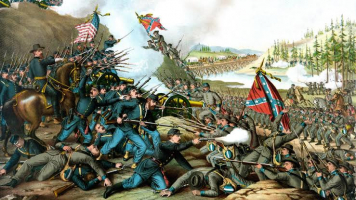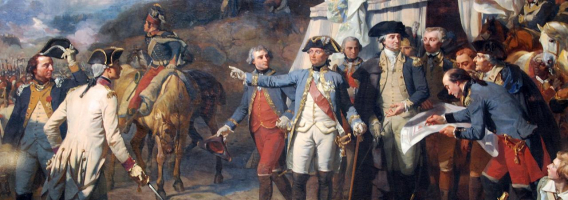Top 10 Major Causes of World War I
The First World War began in the summer of 1914, shortly after Austria's Archduke, Franz Ferdinand, was assassinated, and lasted for more than four years, ... read more...concluding in 1918. Because of trench combat and the large number of countries involved in the conflict, more than 20 million troops died and another 21 million were injured during the Great War. Understanding the causes of World War I is just as crucial as understanding the conflict's catastrophic consequences for budding historians. Though Archduke Ferdinand's assassination was the immediate precipitating event that led to the declaration of war, numerous other causes also had a part in the build-up to World War I. (WWI). Today, let's follow Toplist to discover some major causes of World War I.
-
Prior to 1870, Germany was a collection of minor kingdoms, duchies, and principalities rather than a single country. The Kingdom of Prussia, commanded by Kaiser Wilhelm I and his prime minister, Otto von Bismarck, began a series of confrontations in the 1860s in order to unite the German nations under their control. After a series of attacks, the Germans beat the French, capture Emperor Napoleon III, and conquer Paris in the Franco-Prussian War. Wilhelm and Bismarck effectively united Germany by proclaiming the German Empire at Versailles in early 1871.
Great Britain and France dominated the industrial, military, and economic sectors of the nineteenth century. After Germany's unification in 1871, however, this dominance was constantly challenged. The German economy grew at a breakneck pace, catching up to the British and French in terms of production and exports. Germany was investing in and reaping the benefits of modern sectors such as electrical and chemical manufacturing. It was also becoming a leader in the textile industry. The absorption of Alsace and Lorraine from France had enhanced coal production, and the projected Berlin-Baghdad Railway, which would connect Germany to Persian Gulf oilfields, was causing concern among its rivals. By the end of the 19th century, Germany had become the largest economy in Europe and wanted to further its ambitions as a global power.
Besides the rise of Germany along with the bitter loss of France's territory contributed to one of the main causes of World War I.
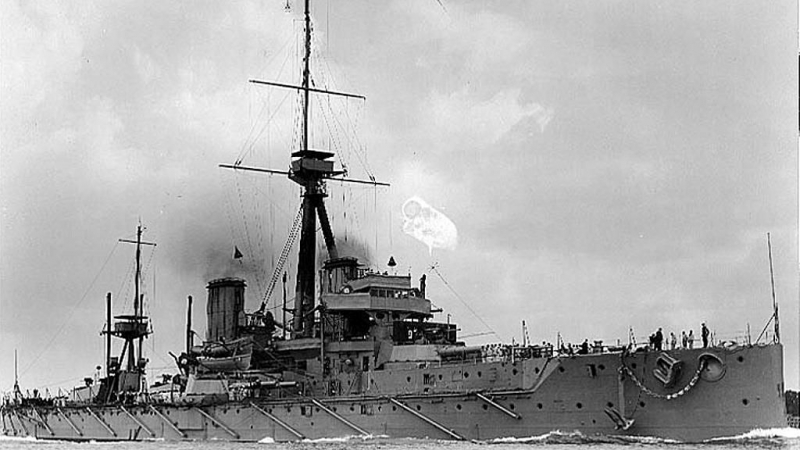
Photo: thoughtco 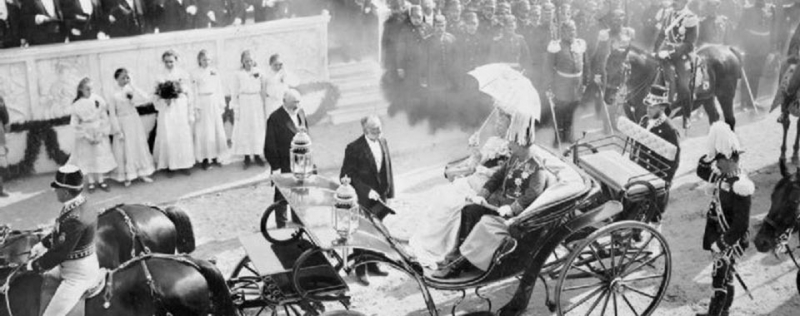
Photo: historyhub -
The Franco-German War, often known as the Franco-Prussian War, took place in 1870–1871 between a coalition of German nations commanded by Prussia and France. France suffered a humiliating setback in the war, and its supremacy in Central Europe came to an end. It also signaled the birth of a unified Germany led by Prussia, with King William I of Prussia declared Emperor of Germany. As a result of the defeat, France was forced to accept the provisions of the Treaty of Frankfurt in 1871, which required it to pay five billion francs in gold in five years as a war indemnity. The loss of the resource-rich (iron ore and coal) and militarily strategic Alsace and Lorraine was even more painful.
The annexation of Alsace and Lorraine by Germany harmed French pride and sparked a desire for vengeance among the inhabitants. As a result, the French drive to reclaim Alsace-Lorraine and Germany's growing ambitions as a global force placed the two countries on the brink of war.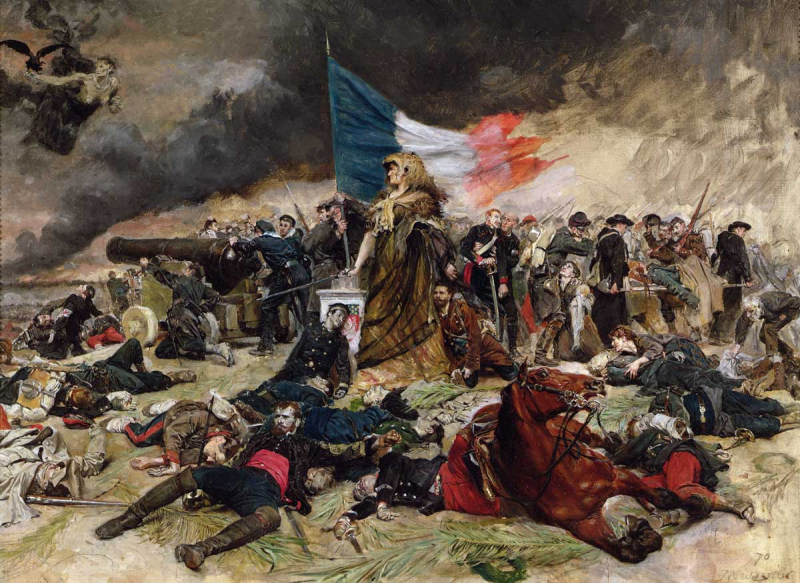
Photo: historytoday 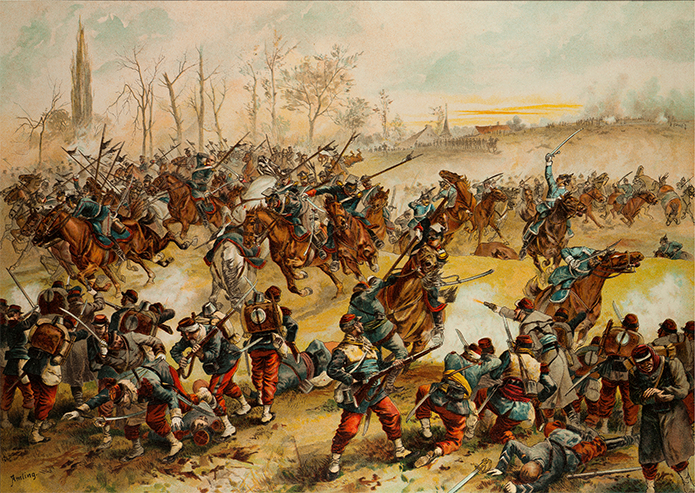
Photo: indiegogo -
Militarism is defined as the notion that a country should maintain a strong military capability and be willing to use it forcefully to defend or advance its own national interests. Militarism was the philosophy that guided the ruling regimes of various European countries in the years leading up to the First World War. Military commanders in the country counseled politicians, influencing domestic policy and seeking increased defense and armaments spending. Though strength and military might have always been favored in human history, the ambition for domination, along with competitiveness, an unstable political situation, and a lack of trust, led to powers across Europe rapidly growing their armies, resulting in the "arms race".
Germany strove to construct a navy that might rival Britain's in the years leading up to the conflict, while Britain pushed to improve its forces to avoid this. Germany created mobilization techniques to quickly mobilize men for war. In addition, Russia, Germany, and France all trained many soldiers to serve as non-active military reserve forces. Furthermore, the massive expenditures in the arms race resulted in the advancement of military technology and the development of more lethal and destructive weapons.
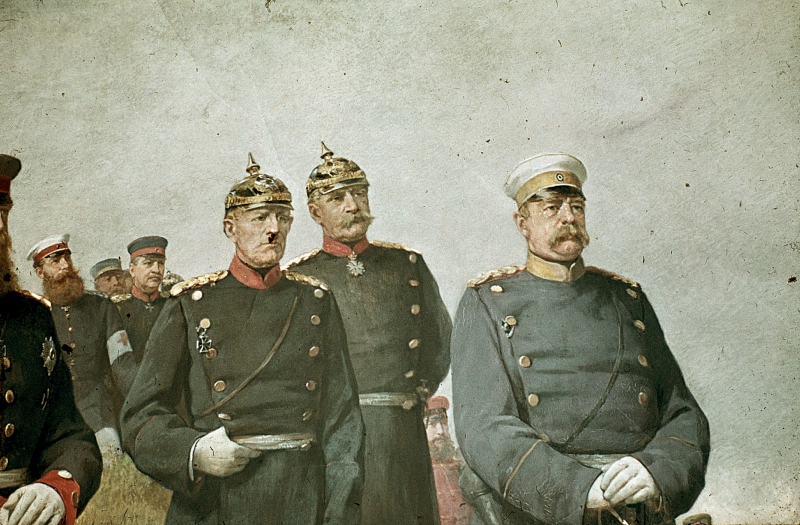
Photo: wikipedia 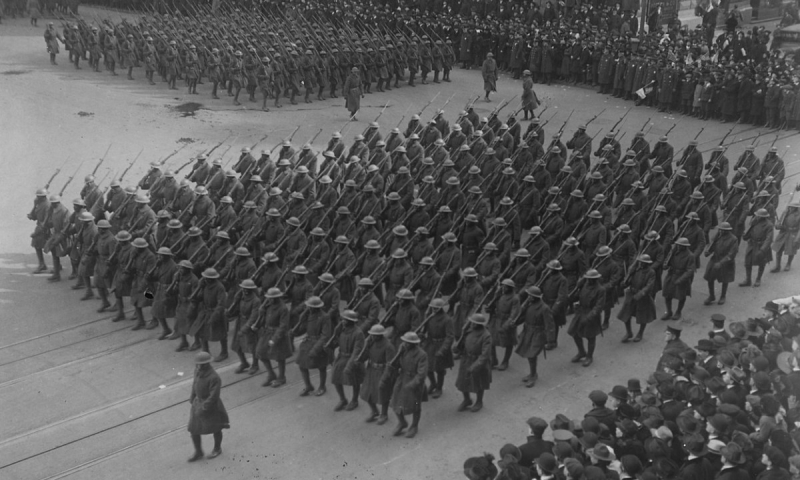
Photo: mwi.usma.edu -
Imperialism is a system in which one country or state (the imperial power) gains control of another country or state (colony) and exploits its people and resources to enrich and empower itself.
The British had established themselves as the world's dominant global force thanks to their control over enormous colonial areas such as India, Australia, and Canada, among others. Only 10% of Africa was under formal European authority until 1870, making it a fertile ground for 'new imperialism' in the late nineteenth century. When the First World War broke out, this number would skyrocket to 90%. Germany had entered the colonial race much later, only to discover that Britain, France, and others had already dominated all the best lands and important ocean roads. Germany annexed Namibia, Cameroon, Togoland, and Tanganyika during the scramble for Africa in the late nineteenth century. They worked tirelessly to link their southwest and eastern colonies. This posed a threat to British progress north from their Cape Colony on the continent's southern tip. Colonies were required for investment, resources, raw materials, and markets for manufacturing, and there was tremendous competition to protect and grow these markets.
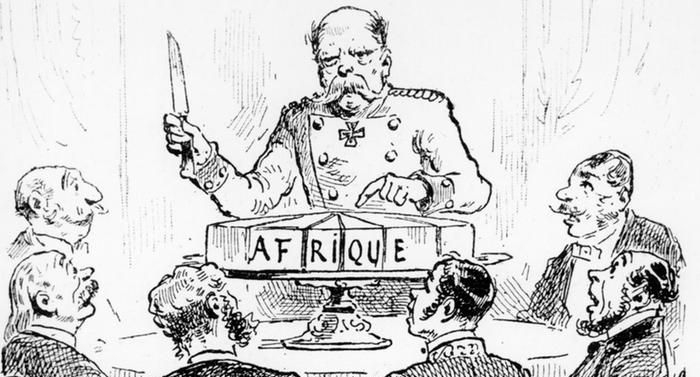
Photo: historycrunch 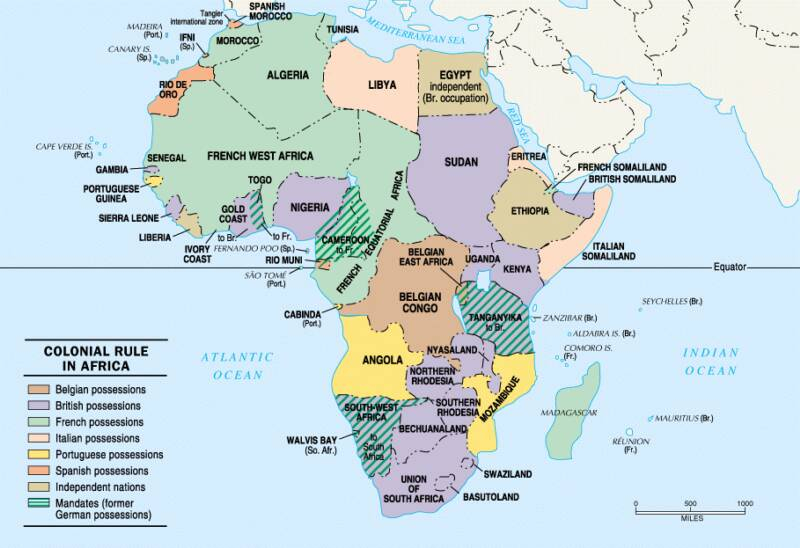
Photo: blogs.baruch.cuny.edu -
Many European individuals, particularly those from colonial powers, believed that their countries had a position of cultural, economic, and military superiority in the globe in the years leading up to the First World War. Because of this nationalist passion, authorities and the media overstated their own importance while looking down on and mocking others. Politicians and other powerful men, as well as the media, contributed to this worldview. Tabloids were full of provocative remarks and hyperbole, and literature, art, and music were full of nationalistic sentiments.
The Great Powers were full of delusions about their military might, with the British extolling their navy, the Germans boasting about their military might, and the Russian Tsar believing his empire was destined by God and defended by Europe's greatest standing army of 1.5 million men. Furthermore, their own countries were always just and fair, but others were deceitful, bad, backward, and hostile. The result of this distorted worldview was an inflated sense of pride in their own country, with conflict seen as both justified and necessary in times of global competitiveness.
In the Balkans, nationalism took on a new form, with ethnic groups such as Bosnians, Greeks, Bulgarians, and Macedonians seeking political independence from huge empires such as the Ottoman and Austro-Hungarian empires. These factions, mostly sponsored by the Russians, destabilized Eastern Europe, turning it into a hotbed of political power struggles in the run-up to WWI.
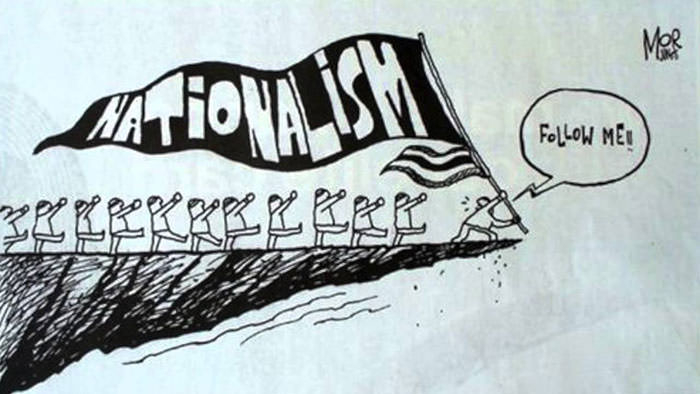
Photo: learnodo-newtonic 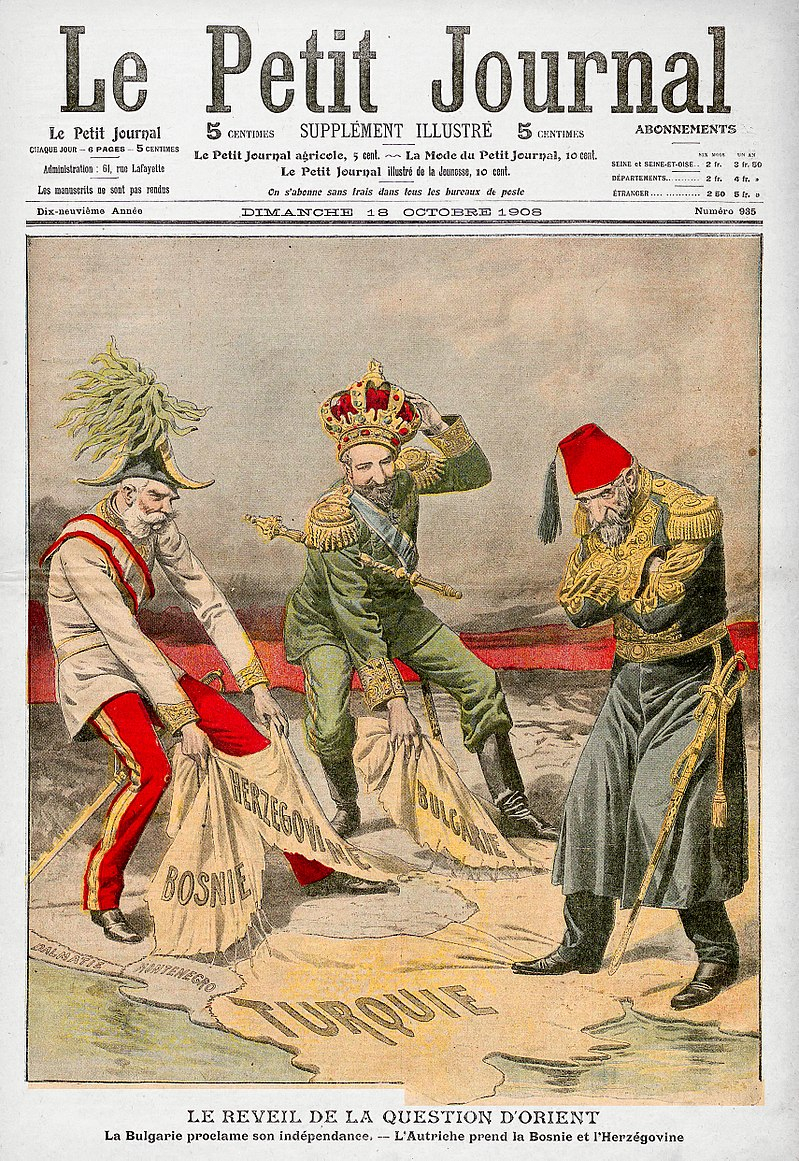
Photo: historycrunch -
In the years preceding up to World War I, Europe's media and literature were saturated with nationalism and propaganda, which had a significant impact on the public. The populace may gladly accept the narrative of being the best and having a far superior culture, manners, and military.
The Germans were constructing their own story to promote their own goals. As the pre-war German press portrayed the British as avaricious, hypocritical, and concerned with money, the British were portrayed as avaricious, hypocritical, and obsessed with money. This type of media propaganda was widely used throughout Europe, and it was a crucial factor in instilling nationalist fervor and pro-war sentiment. Furthermore, most of the information written at the period poured gasoline to the fire by racial profiling other races, leading to xenophobia. Many novels, including some bestsellers, piqued readers' interest and apprehensions about possible foreign invasions. These stories were later classified as "invasion literature".
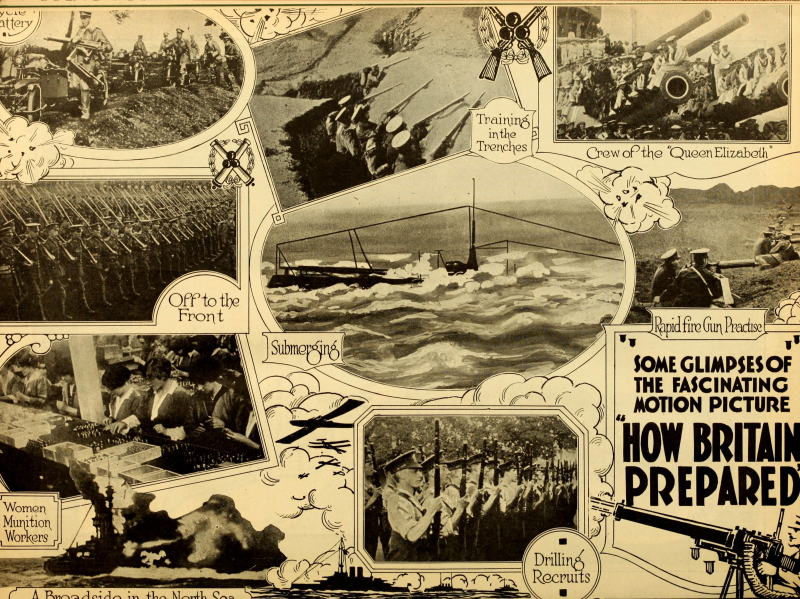
Photo: wikipedia 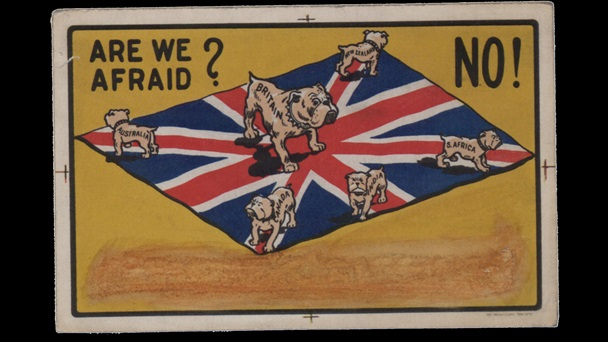
Photo: bl.uk -
The Balkan Peninsula encompasses the land between the Black Sea, Mediterranean, Adriatic, and Aegean Seas. This region east of Europe, which included states and provinces such as Greece, Bulgaria, Serbia, Macedonia, and Bosnia and Herzegovina in the late 1800s, was a hotbed of political unrest and violence. This area was the Ottoman Empire's European realm at the time, with many ethnic groups struggling for independence. Furthermore, the big countries were keenly interested in this region because of its strategic location.
Because of its cultural ties to the Slavic, Russia pursued a pan-Slavic foreign policy in the region, backing Bulgaria and Serbia. This was also in line with its goal of gaining access to Mediterranean waters from the Black Sea. The British wanted to prevent Russia from achieving their goal. As a result, they backed the Ottoman Empire's continuation. As did Austria-Hungary, which was made up of multinational groups and may have been damaged by the fall of the Ottoman Empire. The French desired to enhance their influence in the region, whilst Italy desired to prevent any significant sea power from accessing the Adriatic Sea. The Germans, on the other side, were planning to colonize the Ottoman Empire. As a result, the region was not incorrectly dubbed the "powder keg of Europe" The Balkans' politics were heating up, resulting in the Balkan Wars of 1912–13, which shattered the Ottoman Empire and lay the groundwork for World War I.
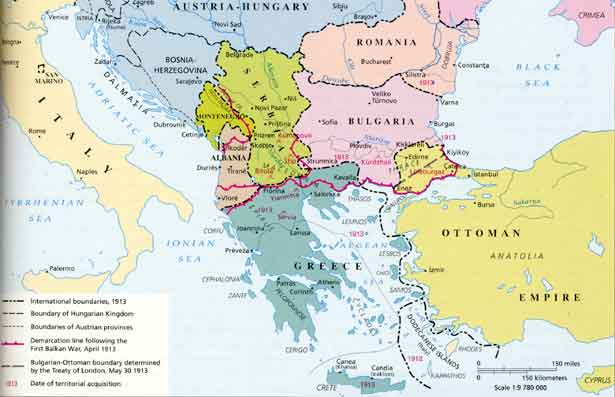
Photo: mrallsophistory 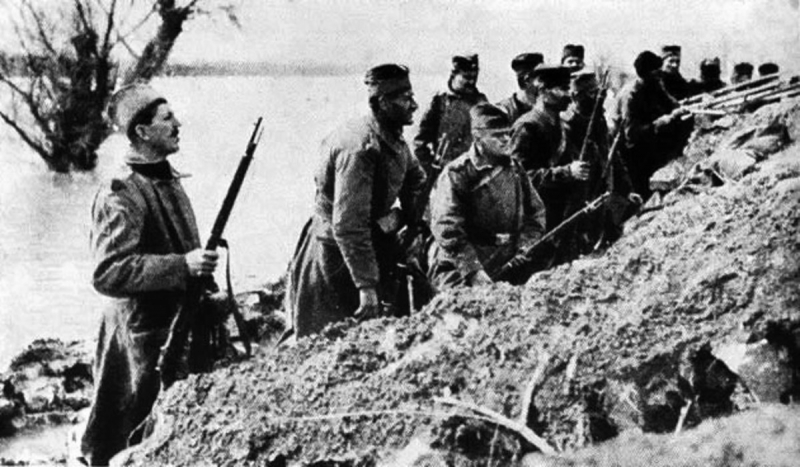
Photo: owlcation -
Serbian nationalism was developing strong in the turbulent Balkan Region in the early twentieth century, and the ascent of a new king more favorable to the Russians in 1903 threatened Austria-Hungary. This sparked animosity between the neighbors, culminating in the "great war" of 1906, during which trade frontiers were closed, harming Serbian pig exports to Austria-Hungary in particular. Serbia's nationalist ambitions in Bosnia, a trade route to the Adriatic Sea, grew as a result of the move. The situation deteriorated further in 1908, when Austria-Hungary proclaimed the annexation of Bosnia and Herzegovina, which had previously been under the Ottoman Empire's control.
Gavrilo Princip, one of a group of six assassins (five Serbs and one Bosniak) co-ordinated by Danilo Ili, a Bosnian Serb and a member of the Black Hand secret society, kills Archduke Franz Ferdinand, the heir presumptive to the Austro-Hungarian throne, and his wife, Sophie, Duchess of Hohenberg, with two gunshots in Sarajevo on June 28, 1914.
The assassination was noteworthy because it was considered as an existential threat by Austria-Hungary, and hence as a casus belli with Serbia. Emperor Franz Josef was 84 years old at the time, and the assassination of his successor, so close to handing over the throne, was seen as a direct challenge to the empire. Many Austrian ministers, particularly Berchtold, think that the crime must be avenged. Furthermore, the Archduke had previously been a strong advocate for peace, but he was suddenly absent from the debates. The assassination sparked the July Crisis, which escalated a local struggle into a European and then a global conflict. So, we can say that this is one of the major causes of World War I.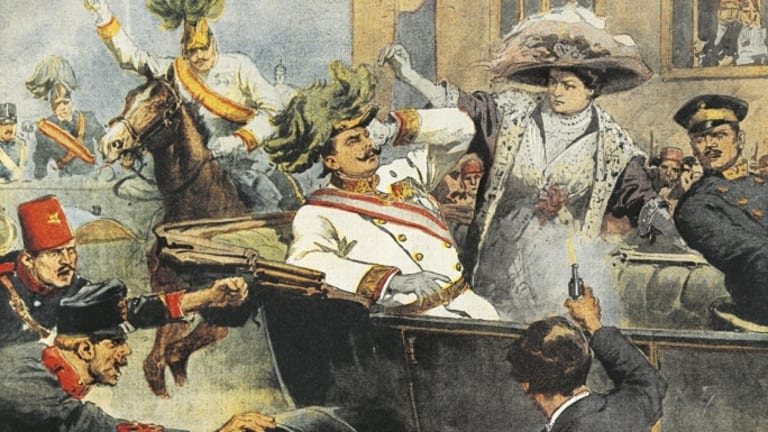
Photo: history 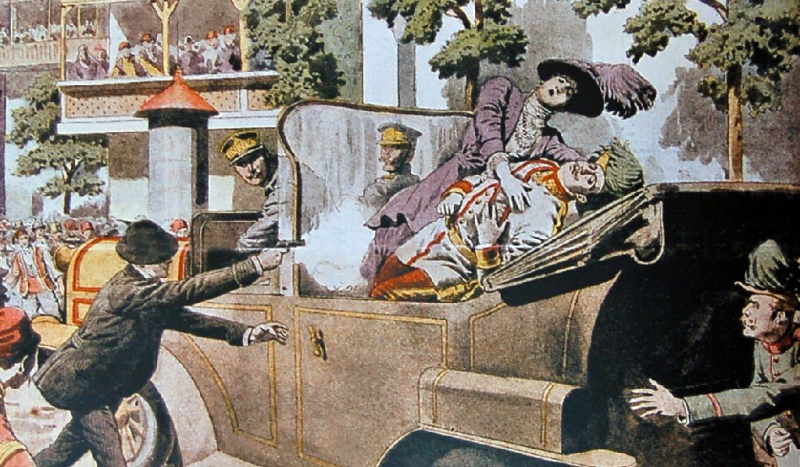
Photo: historycrunch -
The July Crisis refers to a sequence of diplomatic events that occurred in July 1914, following Archduke Franz Ferdinand's assassination. Following the killing and a debate in Vienna (29 June – 1 July), Austria-Hungary intended to strike back against Serbia, which it blamed for the assassination and knew was secretly encouraging Yugoslav nationalism on Austro–Hungarian soil. Austria-Hungary, on the other hand, was frightened of the much larger and more powerful Russian Empire, which was backing Serbia. As a result, it sought assurance from Germany, its own ally.
Germany offered a 'Blank Cheque' on July 6th, offering unconditional support for Austria-Hungary. Austria-Hungary issued a strict ultimatum to Serbia on July 23rd, demanding that Serbia cease all anti-Austrian propaganda within Serbia and enable Austria-Hungary to undertake its own inquiry into the Archduke's assassination. Serbia responded on July 25th, accepting all but one of the demands. Despite this, Austria-Hungary severed diplomatic ties with Serbia. The British offered a mediation conference the next day, but Germany and Austria-Hungary turned it down. Austria-Hungary declared war on Serbia two days later, on July 28th, 1914.
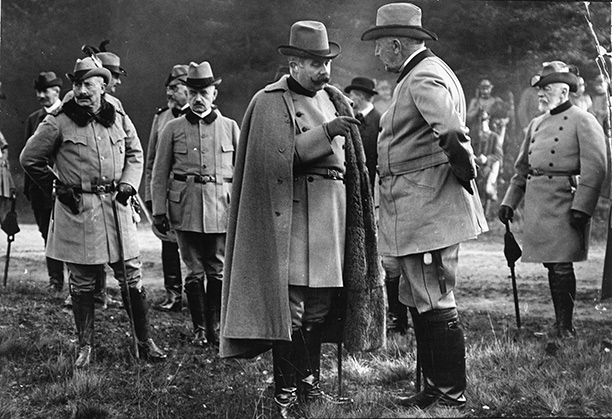
Photo: historytoday 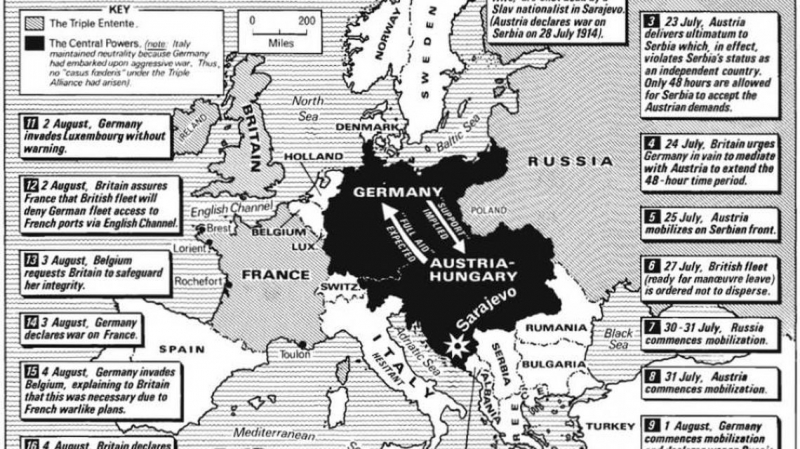
Photo: europecentenary -
Alliances between nations, many of which were kept secret, are regarded as one of the major causes of the World War I. Alliances between states helped maintain a delicate balance of power in the competitive and uncertain political environment of the late 19th and early 20th centuries. Despite being designed as a defense strategy, the alliance structure ensured that any big political disagreements would eventually escalate to a large-scale battle rather than a minor one. In 1879, Germany and Austria-Hungary formed a Dual Alliance in response to Russia's victory over the Turks in 1878. When the Italians joined in 1882, it became a Triple Alliance.
In 1894, France and Russia formed their own Franco-Russian Alliance. They strengthened their diplomatic links by signing the Entente Cordiale with Great Britain in 1904, and the Anglo-Russian Convention in 1907. The Triple Entente was born out of these interwoven accords. After Austria-Hungary declared war on Serbia, the alliance system kicked in right away. On the 30th of July, Germany declared war on Russia, and on the 3rd of August, it declared war on France. Following that, they invaded Belgium. After pledging support to Belgium in the 75-year-old Treaty of London, Britain declared war on Germany on August 4th. Finally, Austria declared war on Russia on August 5th. Thus, due to the alliance system, all the major powers soon entered the conflict, escalating it into a World War.
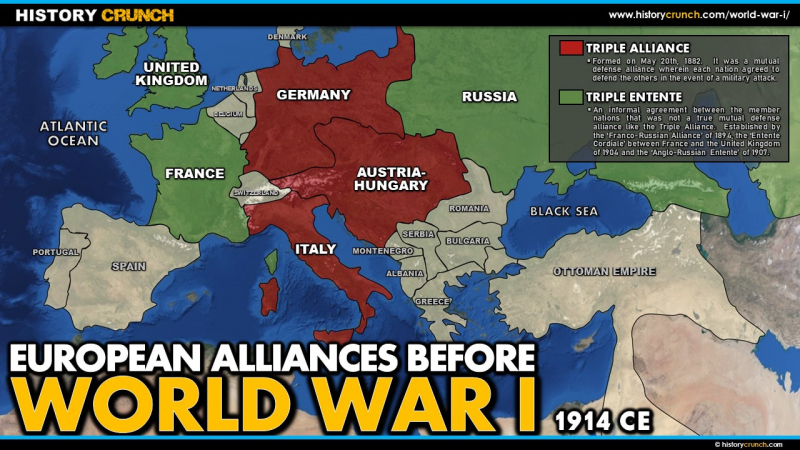
Photo: historycrunch 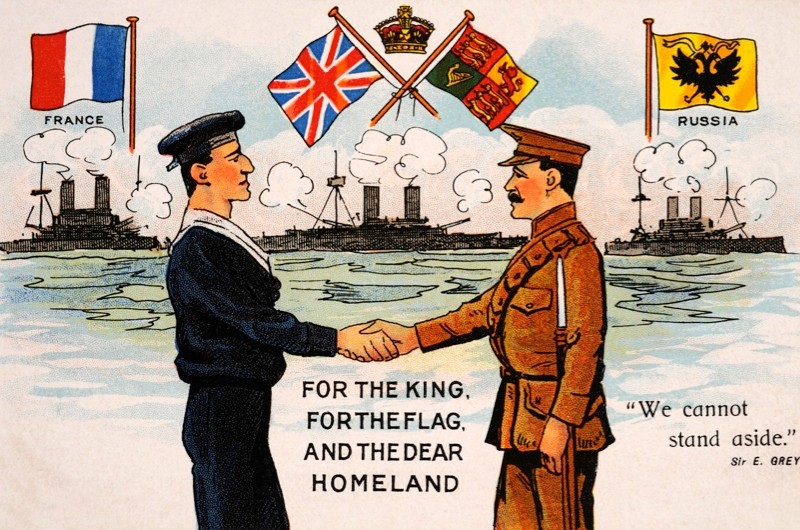
Photo; historyextra












